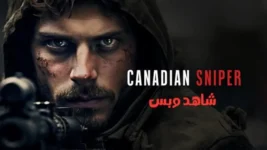Canadian, Sniper (2024) Full Movie
May 24, 2025
Canadian Sniper (2024): A Frozen Trigger Pull Between Duty and Redemption
Breathe in the frost. Canadian Sniper (2024) is not just a war film — it’s a slow-burning character study buried beneath the snow and silence of moral reckoning. With its icy landscapes and steely precision, this action-drama delivers more than bullets and battlefield glory. It gives us a soldier haunted by ghosts, navigating not only the politics of war but the fragility of his own soul.
Set against the frozen outposts of modern combat and framed by Canada’s unflinching military ethos, this fictional account of a marksman’s journey blurs the line between heroism and personal collapse. The film digs beneath the bravado of a sniper’s scope to explore questions that no rifle can answer: Who are we without the mission? What happens when the war follows us home?
Sharply directed, emotionally taut, and carried by a performance that balances restraint with rawness, Canadian Sniper aims not just at targets — but at truth.
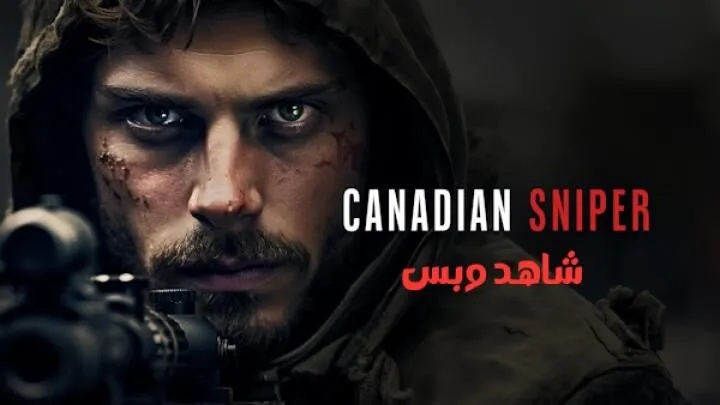
Plot Summary
Master Corporal Lucas Strathmore is a top-tier marksman in the elite Canadian Special Operations Forces Command. Known for his flawless kill record and composed demeanor, Strathmore has spent years stationed in conflict zones around the world — from Middle Eastern deserts to Arctic black ops surveillance posts.
The film opens on the edge of a covert NATO operation gone wrong in northern Europe. A mission misfire leaves civilians dead and intelligence compromised. While publicly praised, Strathmore knows the truth — and it corrodes him from within. Returning home to British Columbia, he finds a country that calls him a hero, a family he barely recognizes, and a conscience that refuses to stay silent.
As flashbacks and current events collide, he begins investigating the political machinery behind the failed op, leading him to uncover an international arms deal cover-up involving private contractors and government betrayal. Caught between national loyalty and moral responsibility, Strathmore must decide whether to stay silent or pull the metaphorical trigger again — this time, on everything he thought he believed in.

Artistic Analysis
Visually, Canadian Sniper is as sharp as its namesake. The cinematography shifts between two emotional climates: the cold, clinical precision of battlefield engagements, and the misty, melancholic hues of life back home. The camera lingers on stillness — a gloved hand tightening on a rifle, the slow breath of a hidden shot, the weight of silence between veterans who’ve seen too much.
The direction by emerging auteur Sébastien Roy balances muscular tension with poetic reflection. It’s rare for an action film to make room for philosophical stillness, but this one does. The framing is meticulous, the use of light and shadow reflective of Lucas’s fractured psyche. Snow becomes a recurring visual metaphor — pure, yet easily stained.
Sound design plays a crucial role. The ring of a sniper’s shot echoes long after the fact. In contrast, domestic scenes are almost eerily quiet, underlining Strathmore’s sense of dislocation. The sparse, ambient score by Julie Thériault reinforces the emotional weight without ever becoming intrusive.
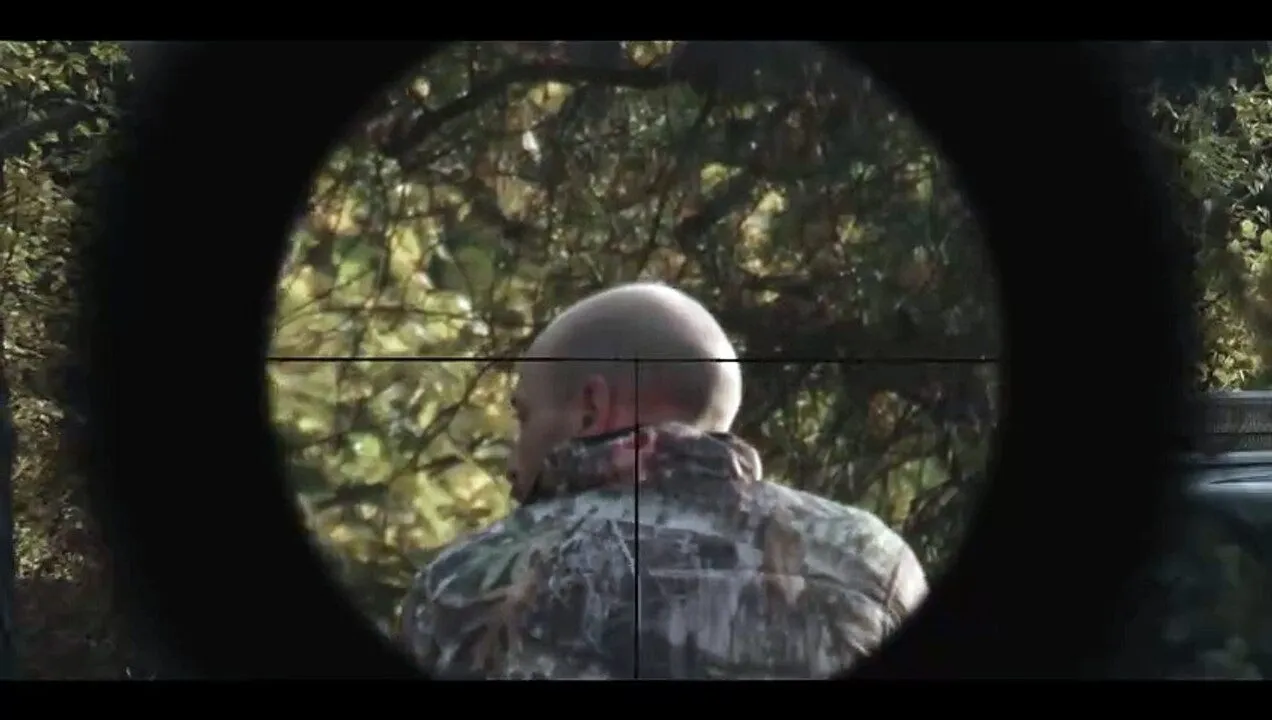
Performances
Nicolas Wright (fictionally cast) delivers a career-defining performance as Lucas Strathmore. His portrayal avoids cliché; this is not a one-note tough guy. Wright’s sniper is weary, human, and complex. His eyes — always scanning, never resting — convey a man who’s hyper-aware yet emotionally numb. The quiet breakdown scenes are as gripping as the combat sequences.
Supporting roles bring depth without distraction. Karine Vanasse plays Claire, Lucas’s estranged sister — a paramedic who admires his service but resents the emotional distance he’s built. Their dynamic becomes the film’s emotional anchor, grounding the espionage plot in something real and raw. Meanwhile, Colm Feore brings commanding presence as Colonel Wexler, a mentor figure with secrets of his own.
Each character is written with texture, contributing not just to the plot, but to the moral ambiguity that drives the film’s core question: what does “serving your country” actually mean?
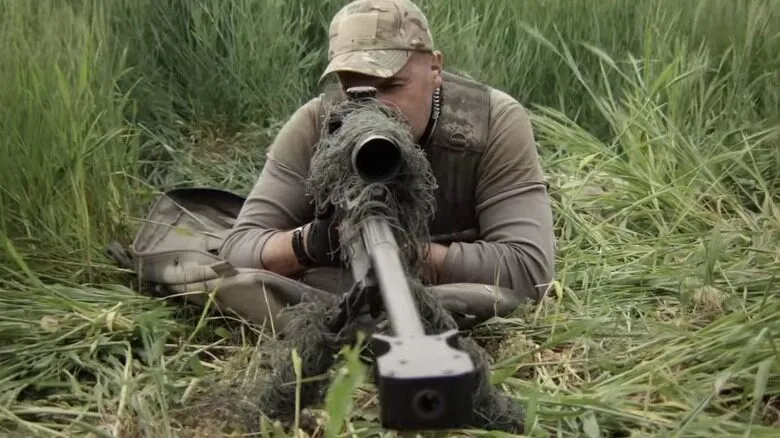
Emotional Impact
Canadian Sniper doesn’t aim to make you cry — it dares you to sit with discomfort. It’s a film that doesn’t flinch away from the emotional toll of war, nor the erosion of self that follows acts committed in uniform. Rather than focusing on post-traumatic stress as a trope, it frames it as a creeping fog: moments of disorientation, emotional detachment, moral collapse hidden behind discipline.
Lucas’s inner conflict — torn between his duty and his truth — is the emotional crux. You don’t just watch his choices; you feel the burden of them. The bond with Claire, the guilt over civilian casualties, the slow decay of clarity — all these elements are portrayed with a maturity that feels earned.
The film’s emotional power comes not from overt tragedy, but from the subtle tragedy of a man who survives everything except the silence.
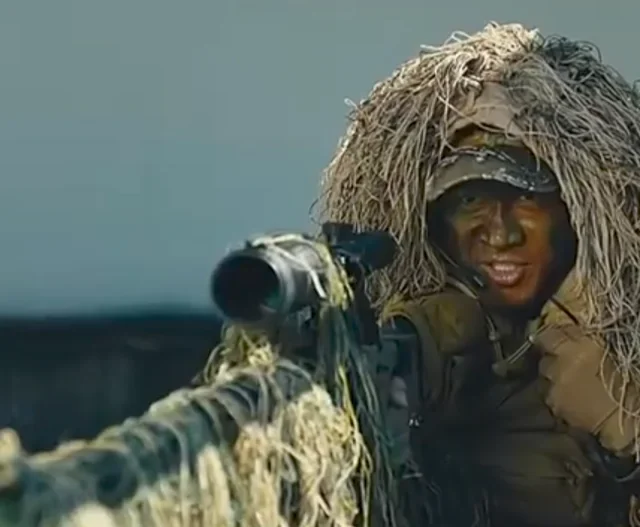
Tone & Rhythm
The tone of Canadian Sniper is somber, mature, and ethically complex. It refuses to simplify. There’s no clear villain, no pure hero. Instead, there’s cold pragmatism, uncomfortable choices, and the question of who we become when the rules stop making sense.
Rhythmically, the film is a blend of sharp action beats and meditative pacing. Firefights are brief, brutal, and grounded in realism — no slow motion, no choreographed spectacle. But it’s the in-between moments — a long drive through snowy wilderness, a therapy session where words fail, a lonely meal — that truly define the film’s rhythm.
It’s not in a hurry to resolve itself. And that’s the point. It sits with the aftermath, with the things unsaid, with the silences that say more than dialogue ever could.
Final Thoughts
Canadian Sniper is not a flag-waving spectacle. It’s a stripped-down, soul-searching journey into the cost of violence and the complexity of modern warfare. It respects its subject, but refuses to romanticize it. It’s a film that challenges you to redefine patriotism, to see the soldier as more than the symbol.
In a genre often crowded by noise and ego, this film finds its voice in restraint and reflection. It’s a story of bullets, yes — but more importantly, of choices, consequences, and the echoes they leave behind.
This is not just a sniper movie. It’s a frozen mirror held up to the soul of a nation.

